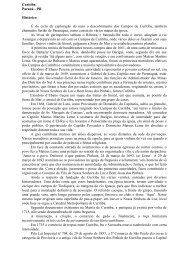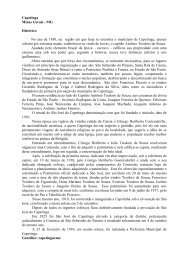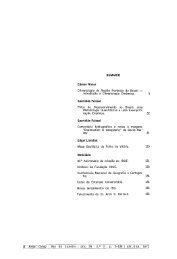STATÍSTICAS NAS MÉRICAS - Biblioteca - IBGE
STATÍSTICAS NAS MÉRICAS - Biblioteca - IBGE
STATÍSTICAS NAS MÉRICAS - Biblioteca - IBGE
Create successful ePaper yourself
Turn your PDF publications into a flip-book with our unique Google optimized e-Paper software.
Introdução / introduction<br />
no debate social, conformando uma<br />
especificidade brasileira.<br />
Os censos brasileiros<br />
compreendidos no mesmo intervalo<br />
(1872-1940) também são objeto da<br />
discussão promovida por Tarcísio<br />
Rodrigues Botelho. Seu artigo<br />
“Censos nacionais brasileiros: da<br />
estatística à demografia” investiga<br />
a evolução dos censos vista a partir<br />
da consolidação da demografia<br />
como disciplina científica. São<br />
analisados os processos técnicos e<br />
a cobertura temática dos censos,<br />
inclusive os projetos daqueles que<br />
não se realizaram, como o de 1852,<br />
para destacar uma transformação<br />
de paradigma, localizada a partir<br />
do censo de 1940: de instrumento<br />
de mensuração do Estado nacional<br />
(sua força e seus recursos), os censos<br />
brasileiros tornam-se instrumentos de<br />
investigação social, orientados pela<br />
pauta das pesquisas demográficas.<br />
Em comum, os dois textos identificam<br />
nas inovações do censo de 1940<br />
uma virada fundamental, na direção<br />
da profissionalização da estatística<br />
e da sua aproximação dos estudos<br />
populacionais de perfil acadêmico.<br />
Dois textos sobre a história da<br />
estatística no México compõem o<br />
segundo grupo das “narrativas sóciohistóricas”,<br />
discutindo “ciência e<br />
técnica”. Merecem registro especial<br />
por uma dupla razão. Primeiro, por<br />
resumirem a contribuição desta<br />
obra ao estudo do cálculo e das<br />
probabilidades na perspectiva da<br />
história social da ciência. Segundo,<br />
por revelarem um “sintoma<br />
historiográfico” relativo ao México,<br />
onde a abordagem histórica da<br />
highlight a paradigm transformation,<br />
observed since the 1940 census: from<br />
a measuring instrument of the national<br />
State (its power and resources),<br />
Brazilian censuses became instruments<br />
of social investigation, oriented by the<br />
ruling order of demographic surveys.<br />
In common, in the innovations of<br />
the 1940 census, both texts identify<br />
a fundamental swerve towards<br />
professionalization of statistics and its<br />
getting nearer population studies of<br />
academic style.<br />
Two texts about the history of<br />
statistics in Mexico form the second<br />
group of “socio-historical narratives”,<br />
discussing “science and technique”.<br />
They deserve a special record for<br />
two reasons. First, they summarize<br />
the contribution of this work to the<br />
study of calculus and probabilities in<br />
the perspective of the social history<br />
of science. Second, they reveal a<br />
“historiographic symptom” related to<br />
Mexico, where the historical approach<br />
of statistics has been done at, or with<br />
the support of, math and polytechnic<br />
study centers. Their authors may be<br />
considered the leading representatives<br />
of such studies in that country.<br />
In “Censuses in the 18 th century.<br />
The case of the 1790 census of<br />
New Spain: discussions on statistical<br />
inference”, Leticia Mayer analyzes<br />
the controversy aroused by the<br />
census in Mexico City, in 1790,<br />
involving the viceroy of New Spain,<br />
the second Count of Revillagigedo,


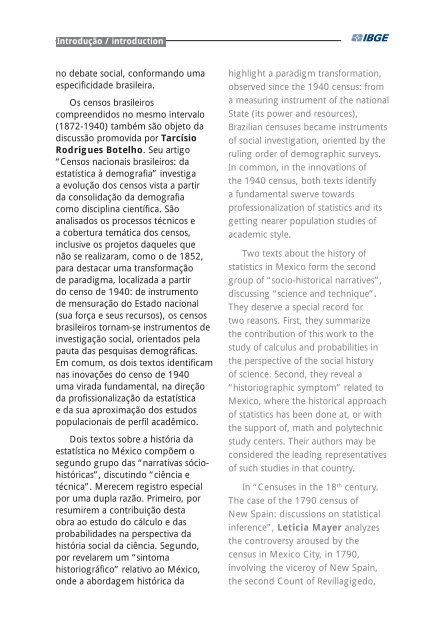
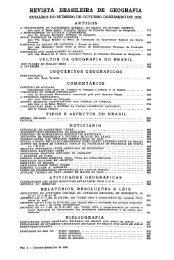
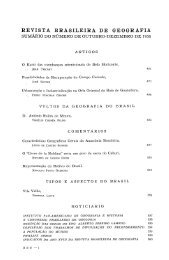



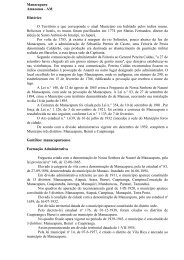
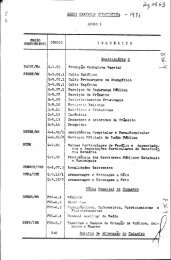
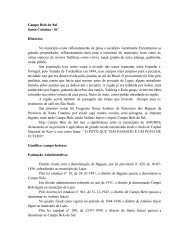
![Manual de Estatística [Fillippo Virgillii] - Biblioteca do IBGE](https://img.yumpu.com/17097551/1/185x260/manual-de-estatistica-fillippo-virgillii-biblioteca-do-ibge.jpg?quality=85)

